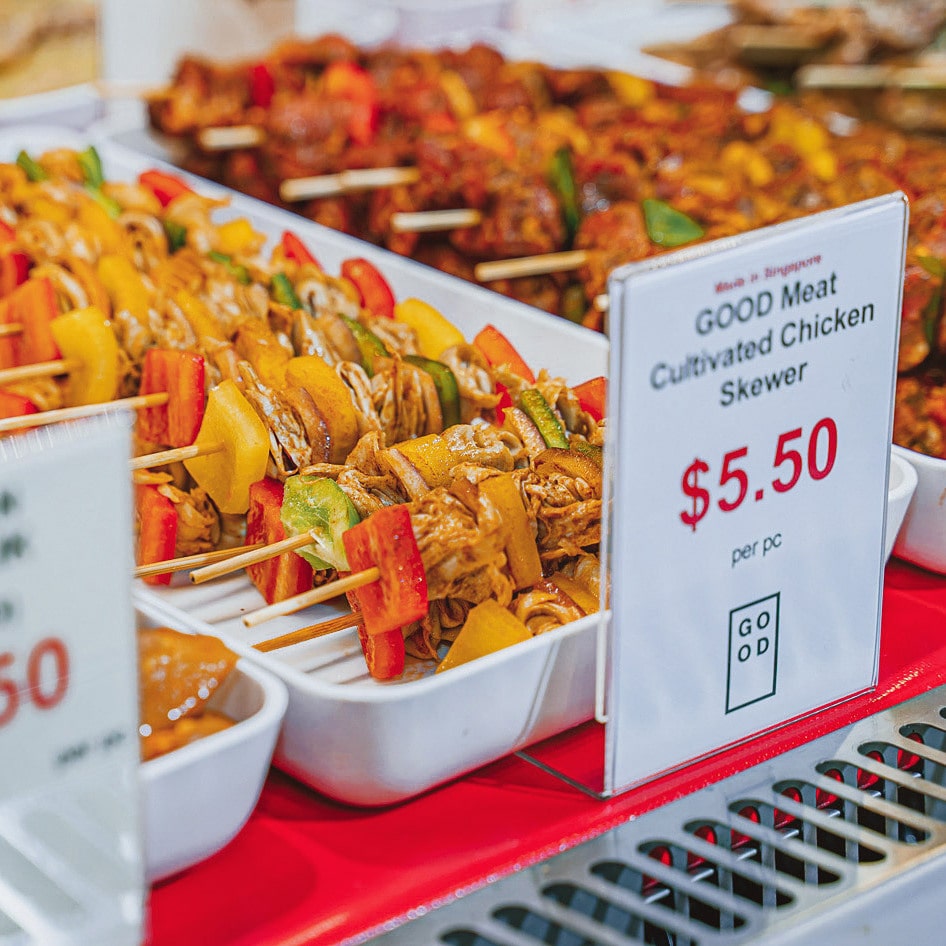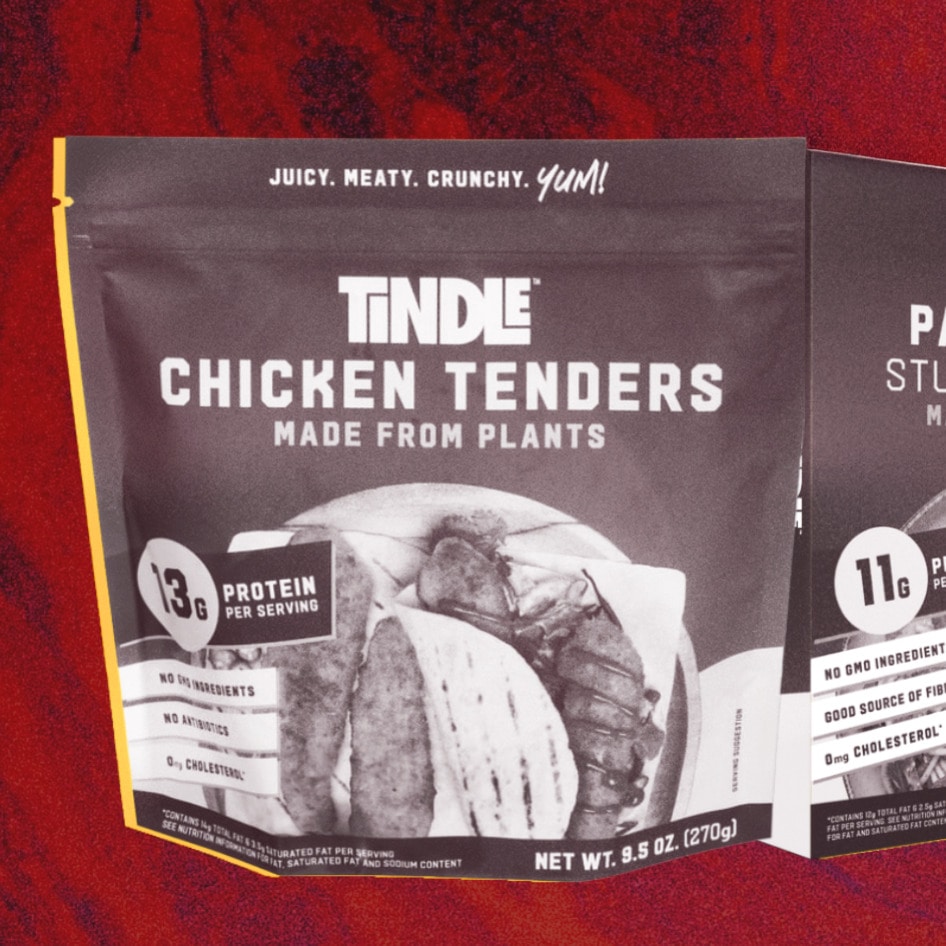This week, the Singapore Food Agency (SFA) approved the sale of cell-based meat—marking the first time a country has granted regulatory approval for the novel food technology that grows real meat from a small number of cells without the need to slaughter animals for food. The SFA has allowed California-based food technology startup Eat Just to include its cell-based (also known as “cultured”) chicken as an ingredient in chicken bites that will be part of a forthcoming small commercial launch for Eat Just’s new brand GOOD Meat.
Singapore’s pioneering step is the beginning of a “space race for the future of food,” according Bruce Fredrich, executive director of food advocacy group Good Food Institute (GFI), which has been meeting with scientists and others from the government of Singapore for more than three years to push the approval process forward. “Singapore has thrown down the gauntlet and other countries need to pick it up,” Friedrich said. “Cultivated meat will mark an enormous advance in our efforts to create a food supply that is safe, secure, and sustainable, and Singapore is leading the way on this transition.”
The SFA approved the sale of cell-based chicken after rigorous testing, documentation, and review in which Eat Just demonstrated a consistent and safe manufacturing process by submitting cell-based chicken samples from 20 production runs in 1,200-liter bioreactors, all made without antibiotics. The startup was able to prove that its cultured chicken met the standards for poultry meat and demonstrated a nutritional profile comparable to its traditionally raised counterpart. The safety and nutrition of Eat Just’s cultured chicken was also approved by a panel of distinguished international scientific authorities in Singapore and the United States, with expertise in medicine, toxicology, allergenicity, cell biology and food safety.
“Singapore has long been a leader in innovation of all kinds, from information technology to biologics to now leading the world in building a healthier, safer food system,” Josh Tetrick, co-founder and CEO of Eat Just, said. “I’m sure that our regulatory approval for cultured meat will be the first of many in Singapore and in countries around the globe. Working in partnership with the broader agriculture sector and forward-thinking policymakers, companies like ours can help meet the increased demand for animal protein as our population climbs to 9.7 billion by 2050.” In addition to commercializing cultured chicken, Eat Just is building a plant protein production facility in Singapore in partnership with Proterra Asia, the top food-focused investment fund in Asia, to bring its mung bean-based vegan JUST Egg to manufacturing and distribution partners across Asia.
Other cell-based startups
A growing number of startups throughout the world are working to disrupt the animal agriculture industry by creating cell-based meats that do not require animal slaughter and use far fewer resources, and many are approaching commercialization. In October, Mosa Meats—which debuted the world’s first cultured meat burger in 2013—announced that it had raised $55 million in a new funding round to expand its pilot facility in the Netherlands to an industrial-sized production line to, eventually, launch its slaughter-free beef to the public. Last month, Israel-based SuperMeat opened The Chicken, a “restaurant” alongside its production facility where it serves its cultured meat as part of composed dishes to gain consumer insight as it moves toward commercialization. Also in November, fellow Israeli startup Aleph Farms moved its prototype for cell-based steak—grown around a plant-based matrix to cultivate 3D meat structures outside of the cow—to a platform that will scale production. All of these companies are awaiting government regulatory approval as a major hurdle to move forward with commercializing their groundbreaking technologies.
“As nations race to divorce meat production from industrial animal agriculture, countries that delay their investment in this bright food future risk getting left behind,” Friedrich said. “The rest of the world should be following Singapore’s lead by funding alternative protein research and working with companies to ensure a rigorous and thorough path to regulatory approval and oversight.”
JUMP TO ... Latest News | Recipes | Guides | Health | Subscribe







